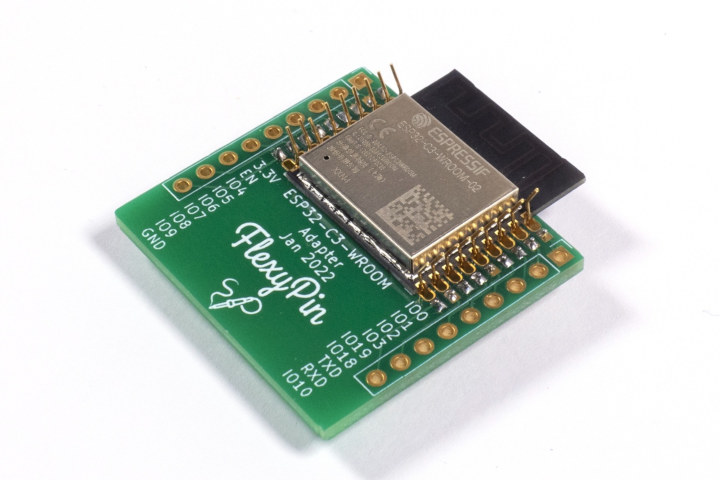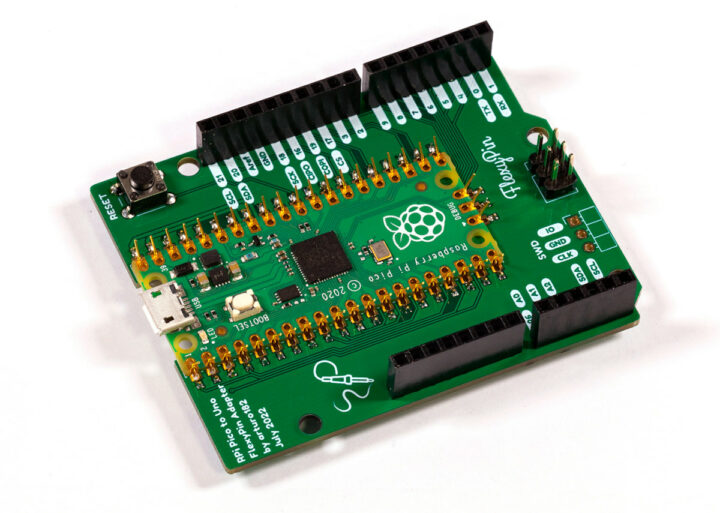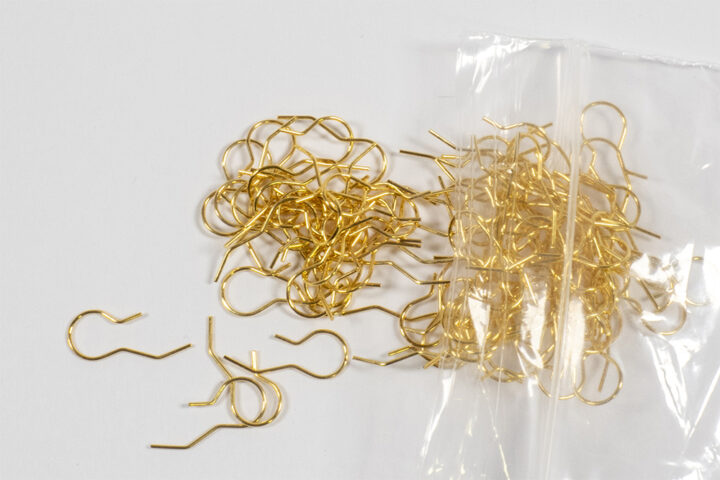Solder Party’s “Raspberry Pi Pico to Uno FlexyPin Adapter” transforms the Raspberry Pi Pico into an Arduino UNO without soldering the board directly or using headers, but instead relying on FlexyPins flexible pins to attach the Pico board to the adapter using its castellated holes.
The end result is basically the same as for the WisdPi ArduPico board, except the Raspberry Pi Pico is soldered to the main PCB on the latter, but it can be easily removed from the Solder Party’s Uno adapter board to be replaced with another compatible model, e.g. Raspberry Pi Pico vs Pico W.
The FlexyPins can be used with any board or module with castellated holes, but it’s obviously especially useful for castellated modules without through holes, for example, to easily program a bunch of ESP32 modules. You’ll first need to get a few FlexyPins as shown below.
Then solder them to a compatible board as shown in the blurry video embedded below.
Solder Party’s “Raspberry Pi Pico to Uno FlexyPin Adapter” board is sold for $1.50 on Lectronz, but most people will want to select the option with a pack of 100 Flexypins bringing the total price to $7.50. It’s not the only Flexypin adapter board as Solder Party has made others for various ESP32 and RP2040 modules. All adapters are open-source hardware with the KiCAD hardware design files available on GitHub.


Jean-Luc started CNX Software in 2010 as a part-time endeavor, before quitting his job as a software engineering manager, and starting to write daily news, and reviews full time later in 2011.
Support CNX Software! Donate via cryptocurrencies, become a Patron on Patreon, or purchase goods on Amazon or Aliexpress







This is excellent! I had done something comparable to flash my ESP8266, from pins extracted from an RJ45 female connector because they’re quite flexible as well, but it was not that great and I only curved them without making a loop like this one. Also the trench through which the pin passes is a good idea, it guides it and prevents it from bending. The result looks excellent! It’s more convenient than Pogo pins! Thanks for sharing this one, it will likely have some success!